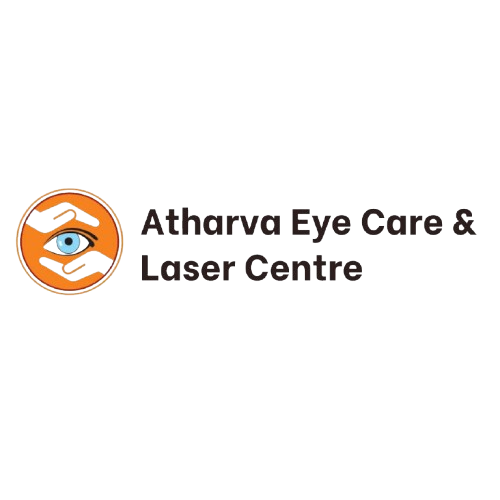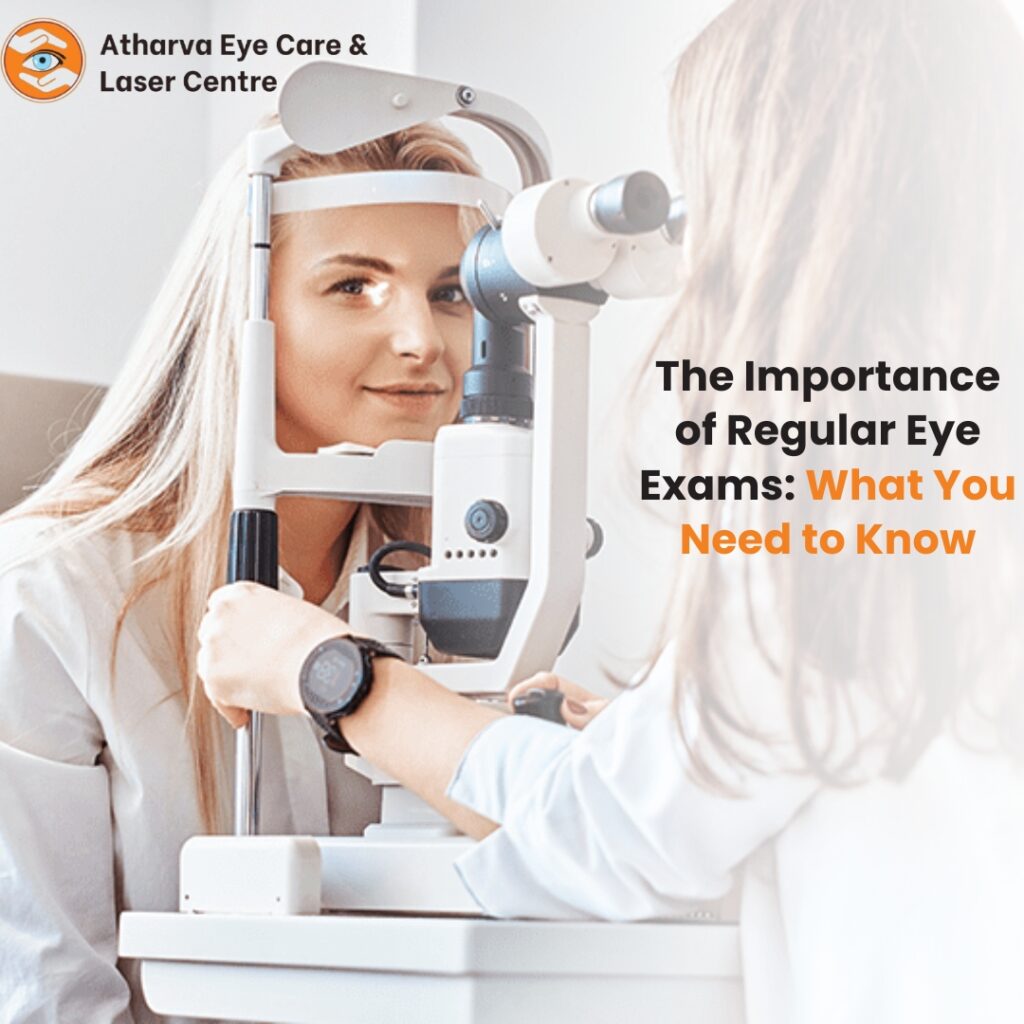- August 30, 2025
- By: atharvaeyeclinic.com
- No Comments
The Importance of Regular Eye Exams: What You Need to Know
Living a healthy and satisfying life requires having good vision. However, a lot of people put off getting regular eye exams until they start to notice issues. Atharva Eye Clinic places a strong emphasis on the value of regular eye exams in identifying vision problems early and preserving good eye health.
Why Are Regular Eye Exams Important?
Many eye disorders start out slowly and show no symptoms at all. Frequent eye exams can assist in identifying these problems before they worsen. Even if your vision appears to be fine, a thorough eye exam can detect common conditions like cataracts, glaucoma, diabetic retinopathy, and age-related macular degeneration.
Key reasons why eye exams are important:
- Early Eye Disease Detection: When conditions like glaucoma or macular degeneration are identified early, they can be treated more successfully.
- Prevent Vision Loss: Many eye conditions can be prevented or their progression slowed down with prompt treatment.
- Update Prescription: As you age or as a result of underlying medical conditions, your vision may change. Prescriptions that have been updated help prevent pain and strain.
- Overall Health Insight: Systemic conditions such as diabetes, high blood pressure, or high cholesterol can also be detected by eye exams.
Who Should Get Regular Eye Exams?
Eye exams are not limited to those who wear glasses or have low vision. Regular eye exams should be performed on all individuals, including children, adults, and senior citizens.
- Children: Early life lays the groundwork for good vision. Exams of children’s eyes aid in the detection of conditions such as refractive errors, crossed eyes (strabismus), and lazy eye (amblyopia).
- Adults (18–60 years): An eye exam every 1-2 years helps monitor eye health, even if you have perfect vision.
- Seniors (60+): As people age, their risk of developing eye diseases like glaucoma and cataracts rises. Checkups are advised once a year.
- Individuals with Risk Factors: People who have diabetes, have a family history of eye conditions, or work in environments where screens are used frequently should have more frequent examinations.
What Happens During an Eye Exam?
A thorough eye exam at Atharva Eye Clinic is about so much more than just squinting at an eye chart. Our skilled ophthalmologists utilize cutting-edge diagnostic tools to assess your overall eye health.
Here’s a glimpse of what you can expect during an eye exam:
- Medical History Review: We’ll chat about any vision concerns, your family’s eye health history, and any general health issues you might have.
- Visual Acuity Test: This checks how well you can see at various distances. Refraction Test: Here, we pinpoint your exact lens prescription for glasses or contact lenses.
- Eye Muscle Test: This evaluates the strength and coordination of your eye muscles.
- Slit Lamp Examination: This lets the doctor take a close look at the front parts of your eye, including the cornea, iris, and lens.
- Retinal Exam: With your pupils dilated, the doctor examines your retina and optic nerve for any signs of damage.
- Tonometry Test: This measures the pressure in your eyes to screen for glaucoma.
These non-invasive tests are essential for catching early signs of any vision problems or diseases.
Benefits of Regular Eye Exams
- Protects Your Eyesight: Early detection leads to early treatment, preventing permanent vision damage.
- Improves Quality of Life: Sharp vision is essential for reading, driving, working, and daily activities.
- Ensures Children’s Visual Development: Poor vision can impact academic performance and social interaction in kids.
- Keeps You Comfortable: Updated prescriptions reduce eye strain, headaches, and fatigue.
- Detects Hidden Health Issues: Eye exams can spot underlying conditions like diabetes or neurological problems.
Eye Care Tips Between Checkups
While regular eye exams are essential, taking care of your eyes daily also matters. Here are some useful tips:
- Take regular breaks from screens (20-20-20 rule).
- Wear sunglasses to protect against UV rays.
- Maintain a balanced diet rich in Vitamin A, C, and E.
- Stay hydrated and get enough sleep.
- Avoid rubbing your eyes and maintain good hygiene.
- Quit smoking—it increases the risk of several eye conditions.
- Use protective eyewear during sports or hazardous work.
Choose Atharva Eye Clinic for Comprehensive Eye Care
At Atharva Eye Clinic, Kalyan, we are committed to offering the highest standard of eye care services. Whether it’s a routine checkup or treatment for an advanced eye condition, our team of experienced eye specialists is here to help.
Why Choose Us:
- Experienced and trusted ophthalmologists
- State-of-the-art diagnostic technology
- Personalized eye care plans
- Comfortable and patient-friendly environment
- Affordable consultation and transparent care
We cater to patients of all ages and provide a wide range of services including cataract surgery, LASIK, diabetic eye care, pediatric eye care, and more.
Book Your Eye Exam Today
Don’t wait for blurry vision or discomfort to take care of your eyes. Regular eye exams are one of the simplest and most effective ways to protect your vision and overall health.
Visit Atharva Eye Clinic or call us to schedule your comprehensive eye checkup today. Your eyes deserve the best care—start with a routine exam.

